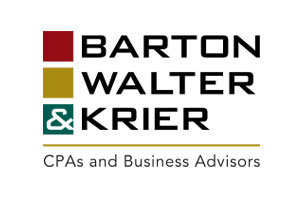Tax Bill Provides Relief for Minnesota Businesses and Residents
July 22, 2021 | Barton Walter and KrierEarlier this month, the Minnesota Legislature passed a tax bill to finish the proposed $52 billion budget and avert a partial state government shutdown. Both legislative chambers passed the bill in a special session that was necessary after lawmakers reached an impasse and failed to complete the job before the end of the fiscal year in June. The bipartisan omnibus bill was approved and signed into law by Governor Tim Walz on July 1, 2021. Read on as we take a closer look at the new tax bill and how it provides much needed relief for Minnesota businesses and residents.
Conformity to federal tax law
The bill includes conforming to selected federal tax changes enacted by Congress since December 31, 2018. In addition, it solidifies a proposal that endorses an initial agreement between the governor and the legislature regarding COVID-relief for Minnesota businesses and individuals. Under the new law, businesses that received funds as part of the Paycheck Protection Program (PPP) will now be allowed to fully deduct the amount on their state income taxes. Moreover, workers who collect payments from unemployment insurance (UI) will be able to deduct them up to $10,200.
Other highlights from the bill
While the bill focuses primarily on COVID relief and K-12 education, it also includes changes that will prove beneficial for businesses throughout the state including:
- Exclusion for SBA loan repayment assistance
- A formula to eliminate the June accelerated sales tax remission if certain state budget criteria are met
- Authorization of 21 new local option sales taxes
- A new legislative Tax Expenditure Review Commission to review current tax expenditures
- Extension of the small business investment credit (angel credit) and historic structure rehabilitation credit
- Establishing a state subtraction for payments from charitable contributions to volunteer drivers
- Eliminating the state addition for section 179 carryovers for property placed into service prior to tax year 2020
- Passthrough entities are now allowed to file as C Corporations as a SALT cap workaround
- Conformity for retirement plan distributions for tax year 2020
- Exclusion for economic injury disaster loans (EIDL) grants
The bill also excludes proposed tax hikes and the creation of a fifth-tier tax bracket. In addition, business owners will see lower property taxes. It will also refill state coffers with $500 million borrowed from state budget reserves.
BWK’s integrated team of expert financial, tax, and strategy professionals provide knowledge and guidance for all your business needs. Contact us today for more information or to speak with a tax professional.

